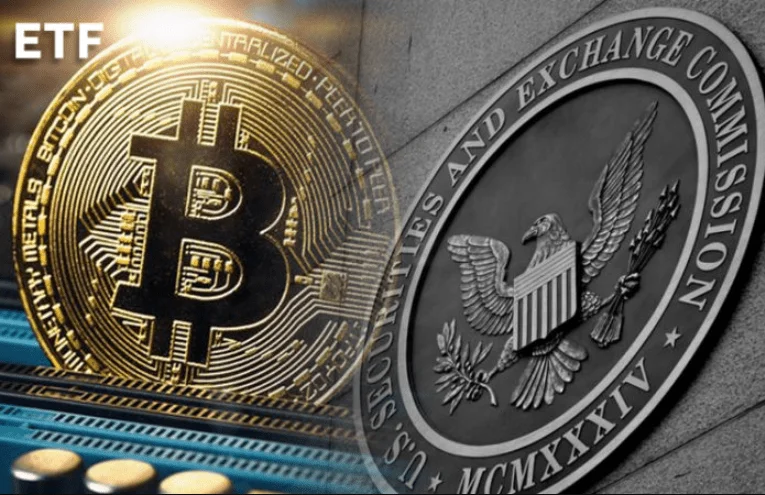The Securities and Exchange Commission (SEC) has prolonged its assessment of VanEck’s Bitcoin ETF for a second time. A decision will now be made in November, according to the schedule.

The Securities and Exchange Commission (SEC) has prolonged its investigation of VanEck’s Bitcoin exchange-traded fund application for a second time. The regulatory authority announced yesterday that it will now provide an answer on whether or not it would approve the ETF on November 14, following the publication of an extension notice.
The Securities and Exchange Commission (SEC) has not yet responded to a Bitcoin ETF application filed by a New York-based asset management firm in December 2020.
VanEck submitted an addendum to its application in March, and the SEC has yet to respond to it as a result of the lengthy delay.
In a notification issued on Wednesday, the Commission stated that it was extending the time limit for considering whether to approve or disapprove the proposed rule change by an additional 60 days.
A Bitcoin ETF is a type of investment vehicle that allows investors to purchase shares of the cryptocurrency with the largest market capitalization, Bitcoin. Other ETFs, such as gold, real estate, and foreign currencies, are extremely popular in the United States.
The SEC, on the other hand, has repeatedly said no to Bitcoin and cryptocurrency exchange-traded funds (ETFs). According to the organization, price manipulation in the cryptocurrency industry is a major worry.
However, there is a strong demand for a Bitcoin ETF as well as other cryptocurrency ETFs. This is due to the fact that they allow investors to invest in the digital asset without having to worry about actually purchasing and safely keeping the cryptocurrency, which may be a concern for older, more technophobic investors.
VanEck is one of 13 firms who are awaiting a response from the Securities and Exchange Commission on approval. One River Asset Management, Valkyrie Investments, Ark Invest, and SkyBridge Capital are some of the prominent competitors in the market.
The launch of Bitcoin and Ethereum exchange-traded funds (ETFs) in Canada was a rousing success, with the quantity of shares exchanged in their first few days of trading shattering all previous records.
Because of this, there hasn’t been much interest in the products since then. For example, when the Purpose Bitcoin ETF was created, it traded shares for $165 million on its first day of trading. According to data from the Toronto Stock Exchange, that figure has plummeted to approximately $843k in the last five days.
However, in the United States, regulatory officials are taking a conservative approach: Chairman Gary Gensler of the Securities and Exchange Commission hinted in August that the Commission might not even be inclined to approve a Bitcoin ETF.
Despite the fact that he expressed interest in the SEC’s review of ETFs that track Bitcoin futures, which are investment products regulated by the Commodity Futures Trading Commission (CFTC).
VanEck filed an application for a Bitcoin futures exchange-traded fund (ETF) not long after. Rather of purchasing the digital asset itself, investors would be able to purchase shares that represent futures contracts (which gamble on the price of Bitcoin going up or down) rather than the digital currency itself.
Due to the fact that Bitcoin futures contracts trade on regulated platforms, such as the Chicago Mercantile Exchange, it is possible that the SEC will be more comfortable licensing a Bitcoin ETF (CME).
Some Bitcoin ETF purists, on the other hand, believe that a futures ETF would be comparatively inefficient and less attractive because, unlike spot-based products, futures products are less liquid and more expensive for both issuers and investors, according to them.
